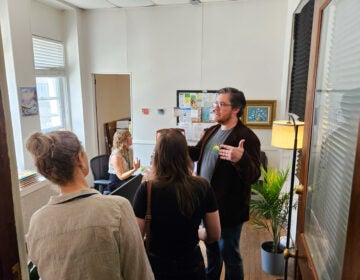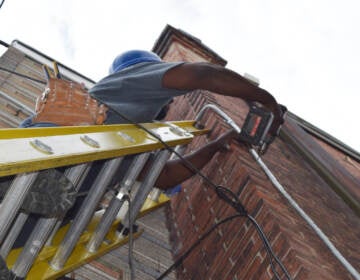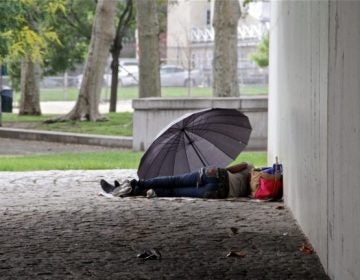Project Home unveils new housing in North Philly for those in recovery
The Ruth Williams House’s 88 new units are reserved for those who have been homeless or are at risk of becoming homeless.
-
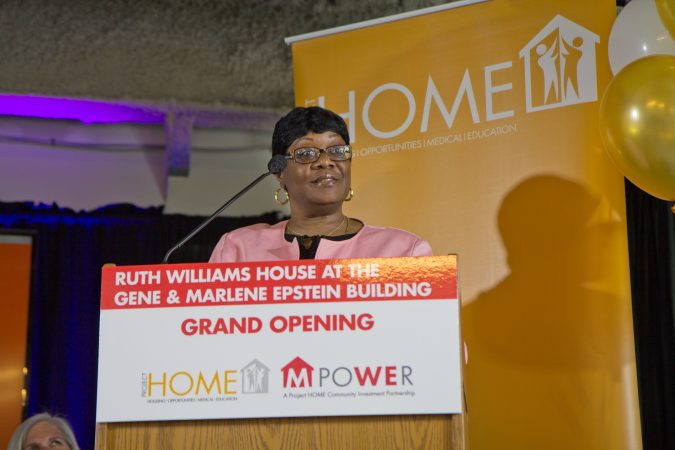
Bonita Prichette is a certified recovery specialist and resident of the Ruth Williams House at the Gene and Marlene Epstein Building in Philadelphia. (Kimberly Paynter/WHYY)
-
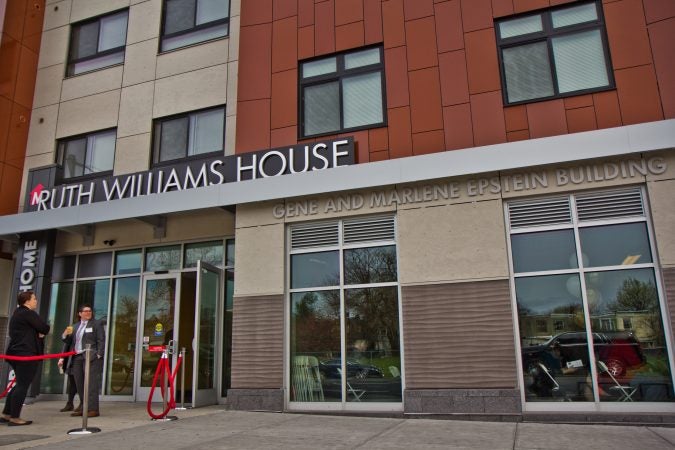
The Ruth Williams House at Broad and Boston Streets in Philadelphia has 88 units for those in need of affordable housing. (Kimberly Paynter/WHYY)
-
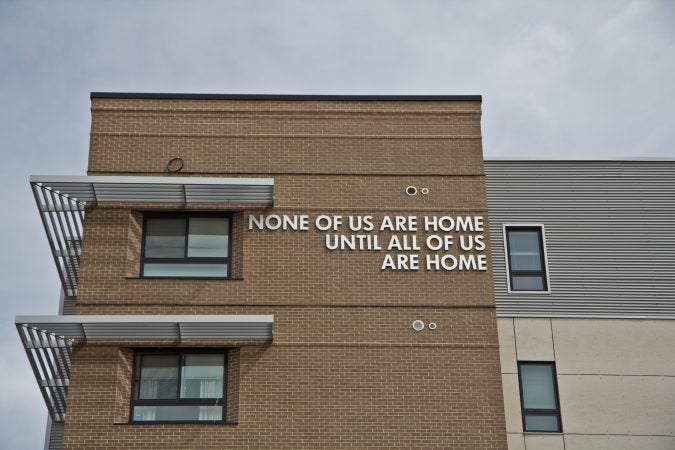
The Ruth Williams House at Broad and Boston Streets in Philadelphia has 88 units for those in need of affordable housing. (Kimberly Paynter/WHYY)
-
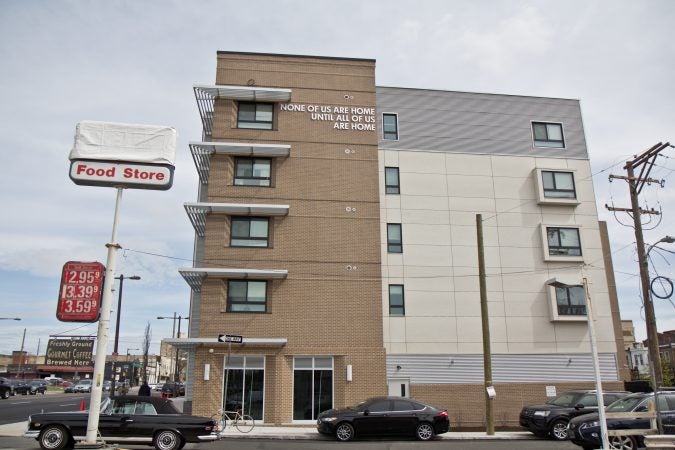
The Ruth Williams House at Broad and Boston Streets in Philadelphia has 88 units for those in need of affordable housing. (Kimberly Paynter/WHYY)
Bonita Pritchette is one of the lucky ones in a city with a dwindling supply of affordable housing.
She was in North Philadelphia Tuesday to help celebrate the official opening of her new home, an apartment in the Ruth Williams House at the Gene & Marlene Epstein Building.
Operated by Project Home, the building’s 88 new apartments are reserved for those who are homeless, have been homeless, or are at risk of homelessness, such as those who have been evicted.
That was familiar terrain for Pritchette.
About three years ago, her life was going smoothly — she was working as a chef, had a nice home, and a son in college. But then, she relapsed.
“I really thought that I would never go back to the life that I lived before,” Pritchette said.
Too ashamed to tell anyone that she had relapsed, she continued using drugs.
“I continued in the shame until I had nothing — no home, no job, no car, no self-respect, no dignity, no nothing.”
Pritchette checked into a rehab and began a long journey to recovery.
Just about a year ago, she learned the new Ruth Williams House was taking applications.
“I arrived at Fairmount Avenue [the Project Home offices] at 10 p.m. on June 16, the night before applications for the building were due,” Pritchette said. “Many of us spent the night on the sidewalk that night. By the next morning, there were more than 1,000 people were in line to apply for 88 units.”
Sue Smith, Project Home’s vice president of residential services, confirmed that more than 1,200 applied for apartments.
“Currently there isn’t any way to apply right now,” she said. “The waiting list is closed. The building is full.”
A first for Project Home
The Ruth Williams House, named for a supporter of Project Home, is the nonprofit’s first official recovery facility.
When they sign a lease, residents must agree that they will not use drugs or alcohol, and they must submit to a urine test when they move in, but Smith said the idea is not to punish residents if they relapse.
“It’s not about, if you test positive, you become homeless. Our goal is to help you back into recovery,” she said.
About 15,000 people access shelter in Philadelphia each year. Nationally, about two-thirds of people experiencing homelessness have a substance use disorder. A drug- and alcohol-free facility like the Ruth Williams House may not be the best fit for everyone experiencing homelessness, but Project Home offers alternatives for those who may not be able to commit to a residency that requires sobriety.
About a quarter of the units in the building on North Broad Street are for young people who are particularly vulnerable. Many have aged out of the foster care system and don’t have somewhere else to live; others identify as LGBTQ.
According to Project Home, most residents make an average of $10,320, well below the income limits to secure a unit. Regardless of how much they make, residents pay one-third of their income and the Pennsylvania Housing Authority subsidizes the balance.
The Ruth Williams House does offer a little affordable housing in a developing neighborhood, said Eva Gladstein with the city Department of Health and Human Services. As the neighborhood begins to see more change, Gladstein said it’s all the more important to preserve affordable options so that people don’t get displaced.
“We’re seeing a tremendous amount of development, particularly in North Philadelphia, but we still don’t have the jobs and the income for everybody to be able to afford it,” she said.
Between 2000 and 2014, a report from the Federal Reserve of Philadelphia found that the city lost 20 percent of its affordable housing. The city has said it aims to build 2,000 units in response.
WHYY is your source for fact-based, in-depth journalism and information. As a nonprofit organization, we rely on financial support from readers like you. Please give today.


